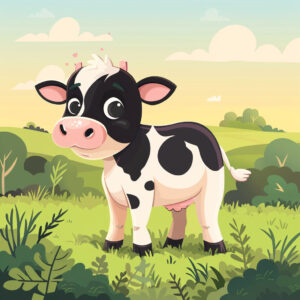 Put roughly, vegetarians are defined by their refusal to eat meat. Vegans take it further and refuse to eat any animal products. There are, as vegetarians and vegans will tell you, many varieties of each and some involve nuances about what is and is not acceptable to eat. For example, some vegans will consume honey while others will not. While this oversimplifies things, people tend to embrace these views for two broad reasons. Moral vegans/vegetarians are motivated by the belief that it is morally wrong to harm animals. Some also consider the total harm arising from the use of animals as products, such as the environmental damage and wastefulness of animal farming. The second reason is health. Some vegans/vegetarians are motivated by concerns about their physical well-being; they think consuming animal products is unhealthy. It is obviously possible to have both (and other) motivations, but I will focus on ethics in context of defining meat.
Put roughly, vegetarians are defined by their refusal to eat meat. Vegans take it further and refuse to eat any animal products. There are, as vegetarians and vegans will tell you, many varieties of each and some involve nuances about what is and is not acceptable to eat. For example, some vegans will consume honey while others will not. While this oversimplifies things, people tend to embrace these views for two broad reasons. Moral vegans/vegetarians are motivated by the belief that it is morally wrong to harm animals. Some also consider the total harm arising from the use of animals as products, such as the environmental damage and wastefulness of animal farming. The second reason is health. Some vegans/vegetarians are motivated by concerns about their physical well-being; they think consuming animal products is unhealthy. It is obviously possible to have both (and other) motivations, but I will focus on ethics in context of defining meat.
From a moral standpoint, the concern about meat (and other animal products) is the harm done to the animals. For example, the creation of veal and foie gras are both moral nightmares of animal suffering. The production of eggs and milk is also often terrible for the chickens and cows. In the case of animals harvested for their meat, even if they are treated well, they are still killed and consumed. Since vegans and vegetarians need to eat to avoid death, they turn to eating plants and plant products.
The moral justification for eating plants, which are living things, is usually based on the claim that plants do not suffer. They lack, it is argued, the sort of nervous system needed to even feel pain. As such they either lack moral status or have a status that allows them to be consumed. This is even though plants are alive. Interesting, and to the annoyance of some vegans, there has been research suggesting that plants have some degree of awareness or even intelligence. This, if true, would raise an moral concern for ethical vegans/vegetarians: if it is wrong to eat meat because of animal suffering, then it would also seem to be wrong to eat plants that can suffer. This concern can be addressed by using an argument analogous to one used to morally justify consuming meat: even if they are aware and have some intelligence, these qualities are insufficient to grant plants a moral status that would make eating them wrong. This could be done without hypocrisy since moral lines can be drawn in a principled way. For example, most people who eat meat would not eat humans because they make a moral distinction between humans and animals. A vegan/vegetarian could draw a line between plants and animals. The concern could also be addressed by eating foods that do not cause any suffering. Interestingly, one option would be synthetic meat.
While synthetic meat would be alive, it would not be part of an animal (or any living thing) that has the capacity to suffer. This would seem to make synthetic meat a non-meat from a moral viewpoint, at least from the standpoint of a moral vegan or vegetarian. Then again, a vegan could counter that the cells needed to grow the synthetic meat were taken from an animal, which would make it unacceptable. An obvious reply is that taking a few cells from an animal would not hurt it or cause suffering. This problem could also be addressed by using source animals that would be well cared for and allowed to die natural deaths. In this case, the moral objection would have to be abstract, that there is just something wrong with consuming any animal product, regardless of any other factors such as suffering.
One way to address this concern would be to create completely synthetic meat that has no direct link to an animal. This synthetic product would be identical to meat but would be completely artificial. As such, no animal would be harmed directly or indirectly in its creation and thus it would morally be not-meat. The logic would be that if meat is murder and synthetic meat is not murder, then it is not meat. While this is a bit silly, it does have a certain appeal.
It could be objected that it is not the ethics of meat that makes meat what it is. To use an analogy, a stolen potato would be morally different from an honestly acquired potato, but both would still be potatoes. As such, it could be argued that even “moral” meat would still be meat, and thus unacceptable to a certain sort of vegan or vegetarian. The challenge would be, of course, to show what it is about such “moral” meat that would still make it immoral. One obvious approach would be the costs of producing it. Synthetic meat is and probably will remain inefficient relative to using resources to grow plant-based foods. However, this would apply to anything wasteful of resources and would not be meat specific. It would, for example, apply to the wasteful process of growing almonds in California.
Given the above, synthetic meat would be morally distinct from classic meat. On the one hand, it could be contended that this would make it not-meat. As such, vegans and vegetarians could eat it and still claim to not be eating meat. On the other hand, it could simply be claimed that it would simply be moral meat and that vegans and vegetarians could not eat it without ceasing to be vegans or vegetarians. Based on the above, synthetic meat would obviously avoid the moral concerns about the suffering of animals. But it does raise moral concerns about its production, but these are not unique concerns and would apply to the production of any food.

 While it might seem odd, the debate over the ethics of eating meat is an ancient one, going back at least to Pythagoras. Pythagoras appears to accept reincarnation, so a hamburger you eat be from a cow that had the soul of your reincarnated grandmother. Later philosophers tended to argue in defense of eating meat, although they took the issue seriously. For example, Augustine considered whether killing animals might be a sin. His reasoning, which is still used today, is based on a metaphysical hierarchy. God created plants to be eaten by animals and animals to be eaten by humans. This conception of a hierarchical reality is also often used to defend the mistreatment of humans. Saint Thomas also considered the subject of killing animals, but ended up agreeing with Augustine and arguing that the killing of an animal is not, in itself, a sin.
While it might seem odd, the debate over the ethics of eating meat is an ancient one, going back at least to Pythagoras. Pythagoras appears to accept reincarnation, so a hamburger you eat be from a cow that had the soul of your reincarnated grandmother. Later philosophers tended to argue in defense of eating meat, although they took the issue seriously. For example, Augustine considered whether killing animals might be a sin. His reasoning, which is still used today, is based on a metaphysical hierarchy. God created plants to be eaten by animals and animals to be eaten by humans. This conception of a hierarchical reality is also often used to defend the mistreatment of humans. Saint Thomas also considered the subject of killing animals, but ended up agreeing with Augustine and arguing that the killing of an animal is not, in itself, a sin.